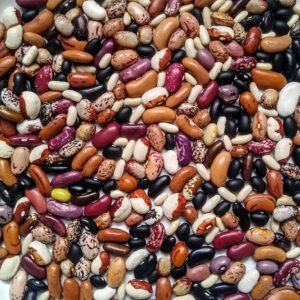
 The Advisory Committee on Biotechnology and 21st Century Agriculture’s draft recommendations add to the burden already carried by organic and non-GE producers struggling to deal with the aftermath of releasing an uncontrollable, patented agricultural technology into the environment. The report seeks to “bolster or facilitate coexistence among different agricultural production systems in the United States” but iterates that it seeks to do so “without assigning fault or blame.” I am not interested in fault or blame; I am interested in responsibility, who is held responsible, and who is left paying the costs associated with “coexistence.”
The Advisory Committee on Biotechnology and 21st Century Agriculture’s draft recommendations add to the burden already carried by organic and non-GE producers struggling to deal with the aftermath of releasing an uncontrollable, patented agricultural technology into the environment. The report seeks to “bolster or facilitate coexistence among different agricultural production systems in the United States” but iterates that it seeks to do so “without assigning fault or blame.” I am not interested in fault or blame; I am interested in responsibility, who is held responsible, and who is left paying the costs associated with “coexistence.”
The draft report recommends that farmers deal with “coexistence” issues and assigns no responsibility or regulatory oversight to the patent holder or governmental agencies for preventing contamination. The recommendations then propose to institute a “compensation mechanism” through the Federal Crop Insurance program for this lack of responsibility by suggesting that the harmed party self-insure themselves against the losses associated with GE contamination. Moving forward with the Federal Crop Insurance compensation proposal would institutionalize these externalized costs. While GE farmers would also pay into this program, I as a non-adopter should not have to pay into the compensation fund to be compensated. The patent holders are off the hook, regulatory agencies are not required to regulate, the adopters continue to benefit, and those who are harmed continue to pay externalized costs. These recommendations ignore societal values of responsibility and fairness.
The Federal Crop Insurance program is a federally subsidized program and is meant to cover losses resulting from “Acts of God.” This program should not be used to insure against externalized costs resulting from corporately owned, patented technologies. The Federal Crop Insurance program is not the right tool for this compensation fund.
Financial compensation for the loss of a particular crop harvest does little to protect the rights of farmers growing non-GE crops. Financial compensation ignores the loss of the natural capital, namely biodiversity, as crops become contaminated and GE-free seed can no longer be saved and replanted. Financial compensation does not pay for the loss of social capital, as market reputations and marketing relationships are compromised and lost. Financial compensation will not insure the political capital of being able to choose to grow non-GE crops, as this proposal is not coupled with mandatory contamination prevention strategies.
By approaching their work “without assigning fault or blame” the committee has sidestepped responsibility. Coexistence without responsibility is not possible. As an organic farmer already taking responsibility in doing all I can to ensure the integrity of my crops, I strongly object to buying insurance to pay for losses resulting from the externalized costs of GE-crops.
Theresa Podoll farms with her extended family operating Prairie Road Organic Farm in Fullerton, North Dakota. The 480-acre farm produces a variety of small grains and livestock as well as certified organic garden seeds under contract with seed catalog companies. The Podolls are members of the Family Farmers Seed Cooperative, a farmer-owned marketing cooperative, formed in 2008 with eight founding members in Colorado, New Mexico, Oregon, Washington, and North Dakota. FFSC’s mission is to foster the development and improvement of open-pollinated vegetable varieties suitable to organic production systems, producing and distributing high quality, open-pollinated, certified organic seed. Theresa is the former director of Northern Plains Sustainable Agriculture Society, holds a Master’s degree in Community Development, and serves on the board of the Organic Farming Research Foundation.
